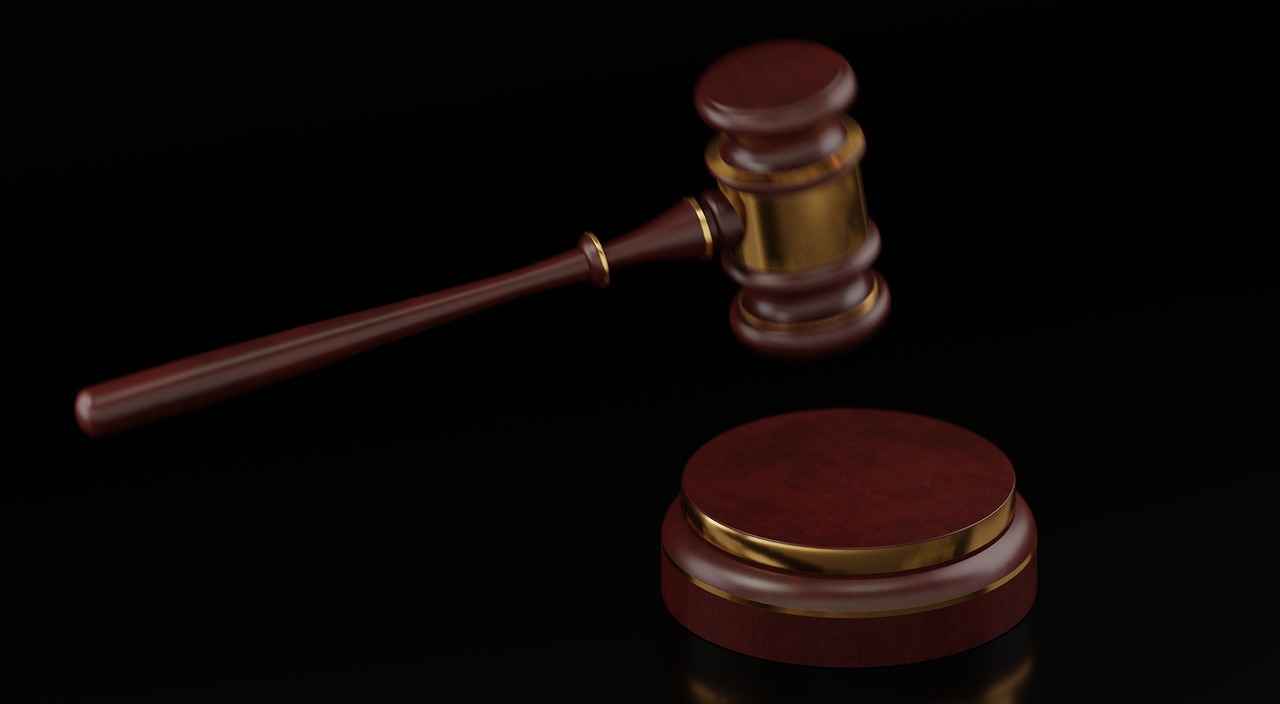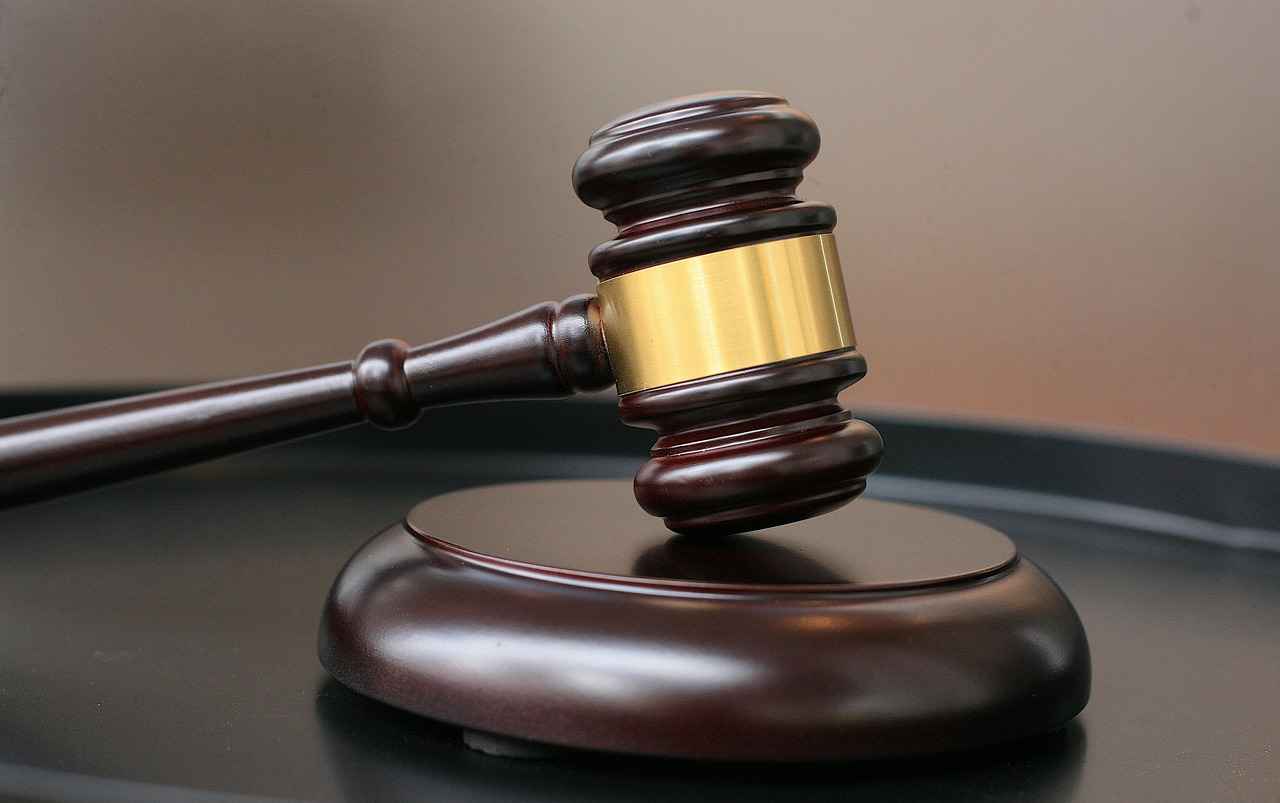This article provides an in-depth look at the most common types of legal cases in the U.S. and how to find qualified attorneys in Boise, Idaho.
Understanding Personal Injury Cases
Personal injury cases are among the most frequently encountered legal issues in the United States. These cases typically arise from accidents, negligence, or intentional harm. For individuals seeking compensation for injuries sustained due to someone else’s actions, finding a qualified personal injury attorney is crucial. Look for lawyers who specialize in personal injury law and have a proven track record of winning cases. Websites like Avvo and FindLaw offer directories of attorneys along with client reviews and ratings.
Medical Malpractice: Navigating Legal Complexities
Medical malpractice cases involve negligence by healthcare professionals, leading to patient harm. To navigate this complex area, it’s essential to find an attorney with experience in medical malpractice. Verify their credentials, including board certifications and past case outcomes. In cities like Boise, consider reaching out to local bar associations for referrals or checking online resources for specialized attorneys.
Breach of Contract: Legal Remedies and Representation
Breach of contract disputes are common in business dealings. To protect your interests, seek an attorney with expertise in contract law. Look for lawyers who have successfully handled similar cases and ask for references. Platforms like Justia can help locate attorneys based on their specialties and client feedback.
Property Disputes: Finding the Right Legal Help
Property disputes can arise from various issues, such as boundary disagreements or landlord-tenant conflicts. A knowledgeable attorney can guide you through the legal landscape. When searching for legal representation, consider their experience in real estate law and inquire about their success rate in property-related cases.
Landlord-Tenant Disputes: Legal Guidance for Tenants and Landlords
Disputes between landlords and tenants are frequent and can involve issues such as eviction or security deposits. Finding an attorney who understands housing law is essential. Look for attorneys who are familiar with local tenant rights and have experience in resolving landlord-tenant disputes effectively.
Defamation Cases: Protecting Your Reputation
Defamation, which includes libel and slander, can severely impact one’s reputation. If you believe you are a victim of defamation, seek an attorney with experience in media law and defamation cases. It’s important to find someone who understands the nuances of free speech and the legal standards for defamation claims.
Employment Disputes: Navigating Workplace Issues
Employment disputes can cover a wide range of issues, including wrongful termination and workplace discrimination. An attorney specializing in employment law can provide essential support. When hiring, look for attorneys with a strong background in labor laws and a history of successful litigation in employment-related cases.
Product Liability: Holding Manufacturers Accountable
Product liability cases arise when consumers are harmed by defective products. To hold manufacturers accountable, find an attorney with experience in product liability claims. Look for those who have worked on similar cases and have a solid understanding of consumer protection laws.
Wrongful Death: Seeking Justice for Loved Ones
Wrongful death cases require compassion and expertise. If you are pursuing a claim, seek an attorney who specializes in wrongful death lawsuits. They should have a history of handling sensitive cases and a proven ability to achieve favorable settlements for grieving families.
Class Action Lawsuits: Joining Forces for Justice
Class action lawsuits allow individuals to band together against larger entities, such as corporations. Finding an attorney experienced in class actions is essential for success. Look for lawyers who have previously managed class action cases and have a reputation for fighting for the rights of consumers.
Criminal Defense: Protecting Your Rights
Criminal cases, including theft, assault, and drug offenses, require experienced legal representation. To protect your rights, find a qualified criminal defense attorney with a solid track record. Check their credentials, past case outcomes, and reviews from former clients to ensure you are making an informed choice.
Family Law: Navigating Divorce and Custody Issues
Family law encompasses various issues, including divorce and child custody. Finding a compassionate and skilled attorney can help navigate these sensitive matters. Look for attorneys who specialize in family law and have a strong understanding of local laws and regulations.
Bankruptcy and Financial Legal Issues
Bankruptcy cases require specialized legal knowledge. If you are facing financial distress, seek an attorney experienced in bankruptcy law. They should be able to guide you through the process and help you understand your options for relief.

Understanding Personal Injury Cases
Personal injury cases are common in the United States, encompassing a wide range of incidents that result from accidents and negligence. These cases can arise from various situations, including car accidents, slip and fall incidents, medical malpractice, and workplace injuries. Understanding how to navigate the complexities of personal injury law is essential for individuals seeking compensation for their injuries.
When looking for a qualified attorney for personal injury cases, consider the following steps:
- Research Local Attorneys: Utilize online platforms such as Avvo, FindLaw, and Martindale-Hubbell to find attorneys specializing in personal injury law in your area.
- Check Credentials: Look for attorneys with relevant experience, such as a track record of successful settlements or verdicts in personal injury cases. Verify their credentials through your state’s bar association.
- Read Client Reviews: Client testimonials can provide insight into an attorney’s reputation and effectiveness. Pay attention to feedback regarding communication and case outcomes.
- Schedule Consultations: Most personal injury attorneys offer free consultations. Use this opportunity to discuss your case, ask about their experience, and gauge their approach to your situation.
- Discuss Fees: Personal injury cases often operate on a contingency fee basis, meaning the attorney only gets paid if you win. Ensure you understand the fee structure before hiring an attorney.
It’s also important to be aware of red flags when selecting a lawyer. Avoid attorneys who guarantee specific outcomes, as no case can be predicted with certainty. Additionally, be cautious of those who pressure you into signing contracts without allowing time for consideration.
In summary, finding a qualified personal injury attorney involves thorough research, checking credentials, and maintaining open communication. By following these guidelines, individuals can significantly enhance their chances of achieving a favorable outcome in their personal injury cases.

Medical Malpractice: Navigating Legal Complexities
Medical malpractice cases represent a unique and complex area of law that requires a deep understanding of both medical practices and legal standards. Victims of medical negligence often face significant challenges when seeking justice and compensation for their injuries. Therefore, finding an attorney with specialized experience in this niche is crucial for the success of your claim.
Medical malpractice occurs when a healthcare provider fails to meet the accepted standard of care, resulting in harm to the patient. This can include a range of issues such as surgical errors, misdiagnosis, medication errors, and inadequate follow-up care. Because these cases often involve intricate medical details, it is essential to have an attorney who is not only knowledgeable in legal procedures but also understands the medical terminology and practices relevant to your case.
When searching for a qualified medical malpractice attorney, consider the following key factors:
- Experience and Specialization: Look for attorneys who specialize in medical malpractice law. Their experience in handling similar cases will be invaluable in navigating the complexities of your claim.
- Track Record: Review their history of settlements and verdicts in medical malpractice cases. A strong track record can indicate their ability to effectively advocate for their clients.
- Professional Affiliations: Membership in professional organizations, such as the American Association for Justice or state bar associations, can demonstrate their commitment to staying updated on legal developments in this field.
- Client Testimonials: Reading reviews and testimonials from previous clients can provide insight into their working style and success rate.
- Initial Consultation: Many attorneys offer a free initial consultation. Use this opportunity to ask questions about their experience, approach, and fees.
Additionally, be wary of red flags that may indicate an attorney is not the right fit for your case:
- Lack of Experience: Avoid attorneys who do not have a clear history of handling medical malpractice cases.
- Pressure Tactics: Be cautious of attorneys who rush you into signing contracts or making decisions without giving you adequate time to consider your options.
- Unclear Fee Structures: Ensure that the attorney provides a transparent fee structure and explains how they will be compensated for their services.
In major metropolitan areas like New York City, Los Angeles, and Chicago, the competition among attorneys can be fierce. Utilize online platforms such as Avvo, FindLaw, or Martindale-Hubbell to compare attorneys, read reviews, and check their credentials. Additionally, consider seeking referrals from trusted sources, such as friends, family, or healthcare professionals, who may have experience with medical malpractice cases.
Ultimately, the right attorney can make a significant difference in the outcome of your medical malpractice claim. By conducting thorough research and being diligent in your selection process, you can find a qualified legal professional who will advocate for your rights and help you navigate the complexities of your case.

Breach of Contract: Legal Remedies and Representation
Breach of contract disputes are a common occurrence in the business world, often leading to significant financial and operational challenges. When one party fails to fulfill their obligations as stipulated in a contract, it can result in disputes that require legal intervention. Understanding how to navigate these situations and find a trustworthy attorney is crucial for protecting your interests and achieving a favorable resolution.
To begin with, it is essential to recognize the importance of having a qualified attorney who specializes in contract law. Such an attorney will have the expertise necessary to interpret the terms of the contract and assess the implications of the breach. Here are some steps to help you find the right legal representation:
- Research and Referrals: Start by asking for referrals from business associates, friends, or family who have dealt with similar issues. Personal recommendations can lead you to reputable attorneys.
- Online Legal Directories: Utilize platforms such as Avvo or FindLaw to search for attorneys in your area. These directories often provide ratings, reviews, and detailed profiles of attorneys.
- Check Credentials: Look for attorneys with relevant experience in breach of contract cases. Verify their education, years of practice, and any specialized certifications they may hold.
- Initial Consultations: Schedule consultations with potential attorneys. This allows you to gauge their understanding of your case, their communication style, and their overall approach to handling disputes.
- Assess Communication Skills: A good attorney should be able to explain complex legal concepts in a way that you can understand. Effective communication is vital for a successful attorney-client relationship.
- Evaluate Fees and Payment Structures: Discuss the attorney’s fees upfront. Some may charge hourly rates, while others might work on a contingency basis. Ensure you understand the financial implications before proceeding.
- Trust Your Instincts: Ultimately, choose an attorney you feel comfortable with and trust. A strong attorney-client relationship can significantly impact the outcome of your case.
In addition to finding the right attorney, it is also important to understand the potential legal remedies available in breach of contract cases. Remedies can vary widely depending on the specifics of the case, but common options include:
| Type of Remedy | Description |
|---|---|
| Damages | Monetary compensation for losses incurred due to the breach. |
| Specific Performance | A court order requiring the breaching party to fulfill their contractual obligations. |
| Rescission | Cancellation of the contract, releasing both parties from their obligations. |
| Reformation | Modification of the contract terms to reflect the true intent of the parties. |
When pursuing a breach of contract claim, it is crucial to gather and preserve all relevant documentation, including the original contract, correspondence between parties, and any evidence of damages suffered. This documentation will be invaluable in supporting your case and helping your attorney build a strong argument.
In conclusion, navigating breach of contract disputes requires a strategic approach and the right legal representation. By following the steps outlined above, you can find a qualified attorney who will advocate for your interests and help you achieve a favorable outcome. Remember, the sooner you seek legal advice, the better positioned you will be to protect your rights and interests in any contractual dispute.

Property Disputes: Finding the Right Legal Help
Property disputes can arise from a variety of issues, such as boundary disagreements, easement conflicts, landlord-tenant disagreements, or disputes over property ownership. These conflicts can be emotionally charged and legally complex, making it essential to find a qualified attorney who specializes in property law. The right legal representation can make a significant difference in resolving these disputes effectively and efficiently.
When searching for an attorney to handle property disputes, consider the following key factors:
- Specialization: Look for attorneys who specialize in real estate or property law. Their expertise will ensure they are familiar with the specific laws and regulations that apply to your situation.
- Experience: An attorney with a proven track record in handling property disputes will be better equipped to navigate the complexities of your case. Ask about their experience with cases similar to yours.
- Reputation: Research potential attorneys through online reviews, testimonials, and professional associations. A well-respected attorney will have a reputation for integrity and successful outcomes.
- Communication Skills: Effective communication is crucial in legal matters. Choose an attorney who listens to your concerns, explains legal jargon clearly, and keeps you updated on the progress of your case.
- Fees and Billing Structure: Understand the attorney’s fees and billing practices upfront. Some attorneys charge hourly rates, while others may offer flat fees for specific services. Ensure that their fee structure aligns with your budget.
To find qualified attorneys in metropolitan areas such as New York City, Los Angeles, or Chicago, consider utilizing various platforms:
- Legal Directories: Websites like Avvo, Martindale-Hubbell, and FindLaw allow you to search for attorneys by specialty and location. These platforms often include ratings, reviews, and detailed profiles.
- Bar Association Referrals: Contacting your local or state bar association can provide you with a list of qualified attorneys in your area who specialize in property disputes.
- Referrals: Ask friends, family, or colleagues for recommendations. Personal referrals can provide valuable insights into an attorney’s capabilities and approach.
While searching for an attorney, be mindful of red flags that may indicate a poor choice:
- Lack of Communication: If an attorney is unresponsive or fails to communicate effectively during initial consultations, it may signal future difficulties in your case.
- Pressure Tactics: Be wary of attorneys who pressure you into making quick decisions or signing contracts without ample time to review them.
- Unclear Fee Structures: If an attorney is vague about their fees or billing practices, it could lead to unexpected costs down the line.
In conclusion, property disputes can be challenging and emotionally draining. By taking the time to research and select a qualified attorney, you can enhance your chances of a favorable resolution. Remember to look for experience, specialization, and clear communication, and be cautious of any red flags during your search. With the right legal help, you can navigate your property dispute with confidence.

Landlord-Tenant Disputes: Legal Guidance for Tenants and Landlords
Disputes between landlords and tenants are frequent and can arise from various issues such as unpaid rent, property maintenance, or lease violations. For both landlords and tenants, understanding their rights and obligations under housing law is crucial. Engaging an attorney who specializes in housing law can make a significant difference in the outcome of these disputes. The right legal guidance can help navigate the complexities of the law, ensuring that both parties are adequately represented.
Understanding Your Rights
Both landlords and tenants have specific rights under the law. For instance, landlords have the right to receive rent on time and maintain their property. Conversely, tenants have the right to a habitable living environment and protection against unlawful eviction. Familiarizing oneself with these rights is the first step in addressing any disputes that may arise.
Importance of Legal Representation
When disputes escalate, having a qualified attorney can be invaluable. An attorney experienced in housing law can provide essential legal advice, represent clients in negotiations, and, if necessary, advocate for them in court. This legal representation can lead to more favorable outcomes, whether it’s recovering unpaid rent or defending against wrongful eviction claims.
How to Find a Qualified Housing Law Attorney
- Research Local Attorneys: Start by searching for attorneys who specialize in housing law within your area. Websites like Avvo and FindLaw provide directories of lawyers along with reviews and ratings.
- Check Credentials: Look for attorneys with relevant experience and credentials. Membership in professional organizations, such as the American Bar Association, can indicate a commitment to their field.
- Consultation: Many attorneys offer free initial consultations. Use this opportunity to discuss your case and assess whether the attorney understands your situation and can provide the necessary support.
- Ask About Fees: Understanding the attorney’s fee structure is crucial. Some may charge hourly rates, while others may work on a contingency basis. Ensure that you are clear on all potential costs before proceeding.
Red Flags to Avoid
- Lack of Experience: Be cautious of attorneys who do not have specific experience in housing law. Their lack of familiarity with the nuances of this area can negatively impact your case.
- Poor Communication: If an attorney is difficult to reach or does not communicate clearly, it may indicate future challenges in your working relationship.
- Negative Reviews: Researching reviews from previous clients can provide insights into an attorney’s reputation. Consistently negative feedback may be a warning sign.
Conclusion
In landlord-tenant disputes, having the right legal representation can significantly affect the outcome. By understanding your rights, conducting thorough research, and being aware of potential red flags, you can find an attorney who will effectively advocate for your interests.

Defamation Cases: Protecting Your Reputation
Defamation cases are serious legal matters that can significantly impact an individual’s or a business’s reputation. They involve false statements made by one party that harm another’s reputation, and they can be categorized into two types: libel (written defamation) and slander (spoken defamation). Given the potential consequences, it is essential to approach these cases with care and diligence.
When it comes to finding the right legal representation for defamation cases, several factors should be considered:
- Experience in Defamation Law: Look for attorneys who specialize in defamation and have a proven track record of handling similar cases. Their expertise can greatly influence the outcome of your case.
- Reputation: Research the attorney’s reputation within the legal community. Online reviews, testimonials, and peer recommendations can provide valuable insights into their capabilities.
- Communication Skills: Effective communication is crucial in legal matters. Choose an attorney who can articulate complex legal concepts clearly and who is responsive to your inquiries.
- Understanding of Media Law: Since defamation cases often involve media outlets or social media platforms, an attorney with knowledge of media law can be an asset.
- Fee Structure: Discuss the attorney’s fee structure upfront. Some may work on a contingency basis, while others may charge hourly rates. Understanding the financial implications is essential.
In major metropolitan areas like New York City, Los Angeles, and Chicago, finding a qualified attorney can be competitive. Here are some proven methods to locate the right legal professional:
- Online Legal Directories: Websites like Avvo, FindLaw, and Martindale-Hubbell allow you to search for attorneys based on location and specialty. These platforms often include client reviews and ratings.
- Bar Association Referrals: Contact your local or state bar association for referrals to qualified attorneys who specialize in defamation law.
- Consultations: Many attorneys offer free initial consultations. Use this opportunity to discuss your case and assess whether the attorney is a good fit for your needs.
- Networking: Reach out to friends, family, or professional contacts who may have had similar legal experiences. Personal recommendations can lead you to trustworthy attorneys.
While searching for legal representation, be aware of potential red flags that may indicate an attorney is not the right choice:
- Lack of Specialization: Avoid attorneys who claim to handle every type of legal case. A specialist in defamation law will have the necessary knowledge to navigate the complexities of your case.
- Poor Communication: If an attorney is unresponsive or fails to communicate effectively during initial interactions, it may be a sign of future issues.
- High Pressure Tactics: Be cautious of attorneys who pressure you into making quick decisions or signing contracts without fully understanding the terms.
- Unclear Fee Structure: If an attorney is vague about their fees or costs associated with your case, it may lead to unexpected financial burdens later on.
In conclusion, defamation cases require a thoughtful approach to ensure your reputation is adequately protected. By conducting thorough research, considering the right factors, and avoiding red flags, you can find a qualified attorney who will advocate for your interests effectively.

Employment Disputes: Navigating Workplace Issues
Employment disputes can arise from a variety of workplace issues, including wrongful termination, discrimination, harassment, wage disputes, and violations of labor laws. These conflicts not only affect the employees involved but also the overall workplace environment. Understanding the complexities of employment law is essential for both employees and employers to navigate these disputes effectively.
Identifying a Qualified Employment Attorney
When faced with an employment dispute, the first step is to identify a qualified attorney who specializes in employment law. Look for attorneys who have extensive experience in handling cases similar to yours. This includes knowledge of federal and state labor laws, as well as a deep understanding of the specific issues at hand, such as discrimination claims or wage and hour violations.
Where to Search for Employment Attorneys
- Online Legal Directories: Websites like Avvo, Martindale-Hubbell, and FindLaw provide comprehensive lists of attorneys, including their specialties, ratings, and reviews.
- State Bar Associations: Each state has a bar association that can help you find licensed attorneys in your area. They often provide referral services that can connect you with qualified lawyers.
- Personal Recommendations: Asking friends, family, or colleagues for referrals can be invaluable. Personal experiences often lead to trustworthy recommendations.
Evaluating Credentials and Experience
When assessing potential attorneys, consider their credentials. Look for attorneys who are members of professional organizations such as the National Employment Lawyers Association (NELA). This affiliation often indicates a commitment to employment law and ongoing education in the field. Additionally, inquire about their track record in handling cases similar to yours. A successful history in litigation or settlements can be a strong indicator of their capability.
Questions to Ask During the Consultation
Before hiring an attorney, schedule a consultation to discuss your case. Prepare a list of questions to gauge their experience and approach:
- What is your experience with cases like mine?
- What is your strategy for handling my case?
- How do you charge for your services?
- What are the possible outcomes, and how long might it take?
Red Flags to Avoid
While searching for an attorney, be aware of potential red flags that may indicate a lack of professionalism or expertise:
- High Pressure Tactics: If an attorney pushes you to sign a contract or make a quick decision, consider it a warning sign.
- Poor Communication: An attorney who is difficult to reach or does not respond promptly to your inquiries may not prioritize your case.
- Vague Responses: If the attorney cannot clearly explain their approach or the legal process, it may indicate a lack of experience.
Understanding the Legal Process
Once you have hired an attorney, they will guide you through the legal process, which may involve filing a complaint with a government agency, negotiating a settlement, or pursuing litigation. Your attorney will help you gather evidence, prepare documentation, and represent you in negotiations or court. Understanding this process can help alleviate some of the stress associated with employment disputes.
Conclusion
In summary, navigating employment disputes requires careful consideration and the right legal representation. By identifying a qualified attorney, evaluating their credentials, and understanding the legal process, you can better protect your rights in the workplace. Remember, the right attorney can make a significant difference in the outcome of your case.

Product Liability: Holding Manufacturers Accountable
Product liability cases can be complex and multifaceted, often involving intricate legal principles and extensive evidence. These cases arise when consumers are harmed by defective products, which can include anything from faulty electronics to contaminated food. Understanding the nuances of product liability law is crucial for anyone seeking justice against manufacturers or retailers.
When pursuing a product liability claim, it is essential to find an attorney who specializes in this area of law. Here are some steps to guide you in your search:
- Research Local Attorneys: Start by searching for attorneys in your area who specialize in product liability cases. Websites such as Avvo and FindLaw can help you locate qualified lawyers, complete with reviews and ratings.
- Check Credentials: Look for attorneys with a proven track record in product liability cases. This can include their educational background, years of experience, and any relevant certifications.
- Consult with Multiple Attorneys: Schedule consultations with several attorneys to discuss your case. This will allow you to gauge their expertise, communication style, and approach to handling your claim.
- Evaluate Experience: Inquire about the attorney’s past cases and outcomes. A lawyer with experience in similar cases will be more adept at navigating the complexities of your situation.
- Assess Communication: Effective communication is vital in any legal case. Choose an attorney who listens to your concerns and explains the legal process clearly.
- Red Flags to Avoid: Be cautious of attorneys who guarantee specific outcomes or pressure you into making quick decisions. Trustworthy lawyers will provide honest assessments and allow you to make informed choices.
In product liability cases, the burden of proof often lies with the plaintiff, meaning you must demonstrate that the product was defective and caused harm. This can involve gathering evidence such as:
- Product manuals and safety warnings
- Medical records related to the injury
- Expert testimony from industry professionals
- Documentation of similar complaints or recalls
Additionally, understanding the type of defect is crucial. Product liability claims can be categorized into three main types:
- Design Defects: These occur when the design of the product itself is inherently unsafe.
- Manufacturing Defects: These arise from errors that occur during the production process, leading to a safe design being compromised.
- Marketing Defects: These involve inadequate warnings or instructions that fail to inform consumers of potential risks.
Ultimately, holding manufacturers accountable requires not only a solid legal strategy but also a dedicated attorney who understands the intricacies of product liability law. By taking the time to find the right legal representation, you can significantly enhance your chances of a successful outcome.

Wrongful Death: Seeking Justice for Loved Ones
Wrongful death cases are among the most devastating legal matters a family can face. These cases arise when an individual dies due to the negligence or misconduct of another party. The emotional toll on the surviving family members is immense, and navigating the legal complexities requires not only a deep understanding of the law but also a compassionate approach. Finding a qualified attorney who specializes in wrongful death cases is crucial for families seeking justice and compensation.
In wrongful death cases, the burden of proof lies with the plaintiff, which means that families need to provide substantial evidence showing how the defendant’s actions directly led to the death of their loved one. This requires an attorney with experience in gathering evidence, interviewing witnesses, and understanding the nuances of wrongful death laws in their jurisdiction.
When searching for a wrongful death attorney, consider the following important factors:
- Experience and Specialization: Look for an attorney who specializes in wrongful death cases and has a proven track record of successful outcomes. Their experience can significantly impact the direction and success of your case.
- Client Testimonials: Reading reviews and testimonials from previous clients can provide insight into the attorney’s effectiveness and approach. A lawyer with positive feedback is often a good indicator of their capability.
- Initial Consultation: Many attorneys offer free initial consultations. Use this opportunity to gauge their understanding of your case and their willingness to fight for your rights.
- Communication Skills: Choose an attorney who communicates clearly and regularly. You want someone who will keep you informed throughout the legal process and answer any questions you may have.
- Fee Structure: Understand the attorney’s fee structure, which often includes contingency fees in wrongful death cases. This means they only get paid if you win your case, which aligns their interests with yours.
Additionally, it’s essential to be aware of red flags that could indicate a less-than-reputable attorney. Avoid lawyers who make unrealistic promises about the outcome of your case or who seem more interested in settling quickly than pursuing justice for your loved one.
In cities like New York, Los Angeles, and Chicago, where wrongful death cases can be more common due to higher population densities and the associated risks, you might also consider seeking recommendations from local bar associations or legal aid organizations. These entities often have lists of qualified attorneys who specialize in wrongful death and can provide referrals based on your specific needs.
In conclusion, pursuing a wrongful death claim is not just about seeking financial compensation; it is also about holding responsible parties accountable for their actions. By finding a qualified attorney with the right experience and a compassionate approach, families can navigate this difficult time and work towards achieving justice for their loved ones.

Class Action Lawsuits: Joining Forces for Justice
Class action lawsuits serve as a powerful legal tool that enables individuals to unite their claims against larger corporations or entities that may have caused them harm. This collective approach not only amplifies the voices of the plaintiffs but also enhances the chances of achieving justice and compensation. However, navigating the complexities of class action lawsuits requires the expertise of a qualified attorney who specializes in this field.
In the realm of class action lawsuits, finding the right attorney is crucial. It is essential to look for legal professionals who have a proven track record in handling these types of cases. Here are some key steps to consider when searching for a qualified attorney:
- Research Experience: Look for attorneys who have specific experience in class action lawsuits. They should have a history of successful outcomes in similar cases.
- Check Credentials: Verify the attorney’s credentials, including their education, bar association membership, and any special certifications related to class action litigation.
- Read Reviews: Look for client testimonials and online reviews. Websites like Avvo, Martindale-Hubbell, and Google Reviews can provide insights into an attorney’s reputation.
- Consultation: Schedule initial consultations with potential attorneys. This meeting allows you to assess their communication style, understanding of your case, and overall approach.
- Fee Structure: Understand the attorney’s fee structure. Many class action attorneys work on a contingency basis, meaning they only get paid if you win your case.
Additionally, it’s important to be aware of red flags when selecting an attorney for a class action lawsuit:
- A lack of experience specifically in class action cases.
- Pressure to sign agreements quickly without thorough discussion.
- Unclear fee structures or hidden costs.
- A poor reputation or negative reviews from former clients.
When considering a class action lawsuit, it is also essential to understand the legal landscape surrounding these cases. Class actions can cover a wide range of issues, including consumer fraud, environmental damage, and employment discrimination. Each of these areas may require different legal strategies and expertise, so ensure that your attorney is well-versed in the specific type of class action you are pursuing.
In major metropolitan areas such as New York City, Los Angeles, and Chicago, the legal market is competitive, which can be advantageous for plaintiffs. Many law firms in these cities specialize in class action litigation, providing you with various options. Take the time to research and compare different attorneys to find one who aligns with your needs and goals.
Ultimately, class action lawsuits can be a powerful means of seeking justice against larger entities. By taking the time to find a qualified attorney who specializes in these cases, you can significantly improve your chances of a successful outcome. Remember, the right legal representation can make all the difference in navigating the complexities of class action litigation.

Criminal Defense: Protecting Your Rights
When faced with criminal charges such as theft, assault, or drug offenses, securing experienced legal representation is vital. The stakes are high, and the legal complexities involved in criminal cases require a knowledgeable attorney who can navigate the system effectively. Understanding how to find a qualified defense attorney is crucial to safeguarding your rights and achieving the best possible outcome.
In the United States, criminal defense encompasses a wide range of offenses, including but not limited to:
- Theft and Burglary: These offenses involve taking someone else’s property with the intent to permanently deprive the owner of it.
- Assault and Battery: These crimes involve causing physical harm to another person, which can range from minor injuries to severe bodily harm.
- Drug Offenses: Charges related to the possession, distribution, or manufacturing of illegal substances.
- Murder and Homicide: The unlawful killing of another person, which can lead to severe penalties.
- DUI/DWI: Driving under the influence of alcohol or drugs is a serious offense that can result in significant legal consequences.
- Domestic Violence: Involves abusive behavior in a domestic setting, often leading to severe legal repercussions.
- Cybercrime: Crimes conducted via the internet, including identity theft and online fraud.
- White Collar Crime: Non-violent crime for financial gain, such as fraud and embezzlement.
To find a qualified criminal defense attorney, consider the following steps:
- Research and Referrals: Start by asking friends, family, or colleagues for recommendations. Personal referrals can provide valuable insights into an attorney’s effectiveness.
- Online Reviews and Ratings: Websites like Avvo and FindLaw offer reviews and ratings of lawyers based on client feedback.
- Consultation: Schedule consultations with potential attorneys. Most will offer a free initial consultation, allowing you to discuss your case and assess their expertise.
- Experience and Specialization: Look for attorneys who specialize in criminal defense. Their experience with similar cases will be invaluable.
- Credentials: Verify their educational background, bar association membership, and any additional certifications in criminal law.
- Communication Skills: Ensure the attorney communicates clearly and listens to your concerns. A good attorney should make you feel comfortable discussing sensitive issues.
- Fee Structure: Understand their fee structure upfront. Some attorneys work on a flat fee, while others charge hourly. Make sure there are no hidden costs.
Red flags to watch for when hiring a criminal defense attorney include:
- Promising guaranteed outcomes, as no attorney can predict the result of a case.
- Lack of communication or unresponsiveness after the initial consultation.
- Negative reviews or disciplinary actions from the state bar association.
By following these guidelines, you can increase your chances of finding a qualified attorney who will protect your rights and advocate for your best interests in the face of criminal charges.

Family Law: Navigating Divorce and Custody Issues
Family law is a vital area of legal practice that deals with sensitive and often emotionally charged issues such as divorce, child custody, and spousal support. These matters can significantly impact the lives of individuals and families, making it crucial to have the right legal representation. Navigating the complexities of family law requires not only legal expertise but also a compassionate approach to handle the emotional aspects involved.
When seeking an attorney for family law matters, it is essential to consider several factors to ensure you find the best fit for your needs. Here are some practical steps and insights:
- Research and Referrals: Start by seeking referrals from friends, family, or colleagues who have experienced similar situations. Personal recommendations can lead you to trustworthy attorneys.
- Online Reviews and Ratings: Utilize platforms like Avvo, Martindale-Hubbell, and Google Reviews to gauge the reputation of potential attorneys. Look for those with a strong track record in family law.
- Specialization: Ensure that the attorney specializes in family law. This specialization indicates that they are well-versed in the nuances of divorce, child custody, and related issues.
- Initial Consultations: Many attorneys offer free initial consultations. Use this opportunity to ask questions about their experience, approach, and fees. Pay attention to how they communicate and whether they listen to your concerns.
- Credentials and Experience: Verify the attorney’s credentials, including their education, years of practice, and any relevant certifications. An attorney with experience in family law cases similar to yours can provide invaluable insights.
- Communication Style: Choose an attorney who communicates clearly and is responsive to your needs. A good attorney should be approachable and willing to explain legal processes in a way you can understand.
- Costs and Fees: Discuss the attorney’s fee structure upfront. Understanding how you will be billed—whether hourly, flat fee, or on a contingency basis—can help you avoid unexpected expenses.
In major metropolitan areas like New York City, Los Angeles, and Chicago, the demand for family law attorneys is high, leading to a competitive market. This competition can be beneficial as it encourages attorneys to improve their services. However, it also means that individuals must be diligent in their selection process to avoid potential pitfalls.
One of the most critical aspects of family law is the emotional toll it can take on individuals and families. Therefore, finding an attorney who not only understands the law but also exhibits empathy and compassion is crucial. Look for attorneys who are members of professional organizations, such as the American Academy of Matrimonial Lawyers or the Family Law Section of the American Bar Association. Membership in these organizations often indicates a commitment to staying updated on the latest developments in family law.
In conclusion, navigating family law issues can be daunting, but with the right attorney by your side, you can approach these challenges with confidence. Remember to conduct thorough research, seek referrals, and ensure that your attorney possesses the necessary expertise and compassion to guide you through this difficult time.

Bankruptcy and Financial Legal Issues
In today’s economic climate, many individuals and businesses face the daunting prospect of bankruptcy. This legal process can be overwhelming, but understanding how to navigate it with the help of a qualified attorney is crucial. Bankruptcy cases require specialized legal knowledge, and finding the right attorney can significantly impact the outcome of your financial distress.
When seeking a bankruptcy attorney, consider the following steps:
- Research Specialization: Look for attorneys who specialize in bankruptcy law. This legal field is intricate, encompassing Chapter 7, Chapter 11, and Chapter 13 filings. A specialized attorney will have the necessary expertise to guide you through the different options available to you.
- Check Credentials: Verify the attorney’s qualifications, including their education, experience, and any certifications in bankruptcy law. Membership in professional organizations, such as the American Bankruptcy Institute, can be a good indicator of their commitment to staying updated on legal changes.
- Read Reviews and Testimonials: Online platforms like Avvo and Martindale-Hubbell provide reviews from former clients. Look for attorneys with positive feedback, particularly regarding their communication skills and ability to explain complex legal concepts.
- Initial Consultation: Many attorneys offer free initial consultations. Use this opportunity to discuss your situation, ask questions, and gauge their responsiveness and willingness to help. Pay attention to how they explain your options and whether they seem genuinely interested in your case.
- Understand Fees: Bankruptcy can be expensive, so it’s essential to understand the attorney’s fee structure upfront. Ask about retainer fees, hourly rates, and any additional costs that may arise during the process. Beware of attorneys who charge unusually low fees, as this may indicate a lack of experience or hidden costs.
In major metropolitan areas like New York City and Los Angeles, the competition among bankruptcy attorneys is fierce. Therefore, it’s essential to take your time in selecting the right legal representation. Look for attorneys who have a proven track record in handling cases similar to yours and who understand the local court systems.
Finally, be cautious of red flags. If an attorney makes unrealistic promises about the outcome of your case or pressures you to make quick decisions, consider this a warning sign. A reputable attorney will provide honest assessments and will encourage you to take the time necessary to make informed decisions about your financial future.
By following these guidelines, individuals facing bankruptcy can find a qualified attorney who will help them navigate their financial distress effectively, ensuring they receive the best possible outcome.
Frequently Asked Questions
- How do I know if I need a lawyer for my case?
If you’re facing a legal issue that could impact your rights or finances, it’s wise to consult a lawyer. Think of it like needing a guide in a dense forest; having an expert can help you navigate the complexities of the law.
- What should I look for when choosing a lawyer?
Look for experience in your specific legal issue, positive client reviews, and a good rapport. It’s like dating; you want someone who understands you and has a proven track record of success!
- How much will a lawyer cost?
Lawyer fees can vary widely based on the case type and location. Some charge hourly, while others work on a contingency basis. Always ask for a clear breakdown of costs upfront—no one likes surprise bills!
- Can I represent myself in court?
Yes, you can represent yourself, but it’s like trying to fix your car without any tools. While it’s possible, having a professional can greatly improve your chances of success.
- What is a contingency fee?
A contingency fee means the lawyer only gets paid if you win your case. It’s a great way to ensure that your lawyer is motivated to get you the best outcome possible!














